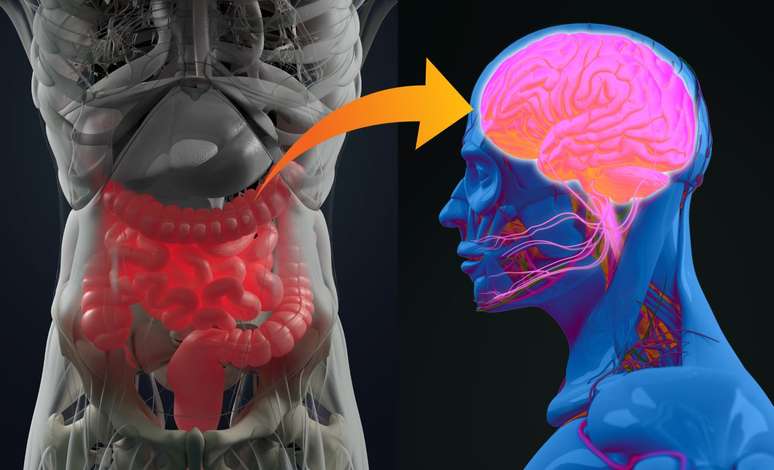Study suggests strong link between healthy gut microbiome and increased resilience to stress
A new study from the University of California (UCLA), USA, has found that people who are resistant to stress tend to have a healthy gut microbiota. The strong connection between gut health and brain health reveals the complex interaction between the organs and multiple systems of the human body. The study was published in the journal Nature Mental Health.
Many experts call stress an epidemic, as it can damage physical and mental health if left unchecked. According to the report Stress in America in 2022 According to the American Psychological Association (APA), stress largely immobilized 37% of adults in the United States that year, leaving them unable to perform many basic daily activities. In the 2023 APA survey, chronic stress among Americans jumped to 45%.
Resilience is a quality that enables a person to respond to stress more effectively through a balanced acceptance of change, tenacity, and the ability to bounce back from difficult events.
How does your gut affect your mental health?
For the study, researchers at the Goodman-Luskin Microbiome Center at UCLA surveyed 116 people about how resilient they felt in the face of adversity. All participants sent a stool sample to researchers and, a few days later, underwent fMRI (functional magnetic resonance imaging) brain scans to look at activity in different regions of the brain. Stool samples from the more resilient individuals had fewer inflammatory bacteria and showed signs of robust gut barrier integrity.
One of the study’s goals was to differentiate itself from previous research that looked at the negative impacts of an unhealthy gut on the brain by looking at things from a positive perspective. The authors say their findings suggest a complex interrelationship between the gut and the brain, with resilience benefiting psychological, emotional, and cognitive function.
The researchers used the Connor-Davidson Resilience Scale (CD Risc) to assess the resilience of study participants. The scale allows people to record their level of resilience by answering 25 questions, with one of five responses ranging from 0 (not at all true) to 4 (almost always).
Five areas comprise CD Risc resilience:
-Personal competence, tenacity and high standards.
– Faith in instincts and tolerance to the negative and reinforcing effects of stress.
-Positive acceptance of change and secure personal relationships
-Check.
-Spiritual influences.
For U.S. residents, the average CD Risc score is 80.7.
What is the relationship between stress and gut health?
Several important connections between the gut and the brain help explain how one affects the other. Previous research has found that the gut microbiome can regulate anxiety levels. Our understanding of how the gut microbiome can influence anxiety is still evolving, but this study highlights a new link to our resilience.
“The health of your gut, the integrity of the bacteria that are there will fundamentally impact the health of the lining of your gut, whether or not it is inflamed,” he explained to Medical News Today David Merrill, a geriatric psychiatrist and director of the Center for Brain Health at the Pacific Neurosciences Institute in California, who was not involved in the study.
When the gut becomes inflamed, it can become “leaky” and less effective at retaining and accessing nutrients. Chronic inflammation is linked to several mental health conditions, and reducing inflammation can help improve brain function and emotional stability. There is also a direct connection between the gut and the brain along the vagus nerve that directly connects the two. Through this “highway,” the gut sends short-chain fatty acids (SCFAs) to the brain that are produced through the fermentation of dietary fiber in the digestive system.
SCFAs play an important role in maintaining gut health and may have beneficial effects on brain function and mood regulation. They help promote the production of beneficial neurotransmitters and reduce inflammation in the brain. These neurotransmitters include serotonin and dopamine. About 90% of serotonin is produced in the gut, as well as 50% of dopamine.
The gut-brain connection is a fact. If you feel like crap and think that it’s not worth taking care of yourself, you’ll eat junk food and all the processed foods and have bad bacteria, so your gut will fall apart, the psychiatrist pointed out.
How to Maintain a Healthy Gut Microbiome
Eating a wide variety of fiber-rich foods, such as fruits, vegetables, beans, legumes, and whole grains, can support a healthy gut microbiome. These foods not only nourish the body, but can also improve stress management by providing essential nutrients for optimal health, energy, and productivity.
It is also recommended to include foods rich in probiotics and prebiotics that help feed the beneficial gut bacteria. They are found in specific vegetables, such as onions, garlic, leeks, asparagus, and jicama (edible root, also known as Mexican potatoes or Mexican turnips), among others.
Getting enough consistent sleep is equally important for gut and mental health, as sleep disturbances have been linked to higher levels of stress. Exercise also supports gut health and its known benefits for overall health.
Source: Medical News Today
Source: Terra
Ben Stock is a lifestyle journalist and author at Gossipify. He writes about topics such as health, wellness, travel, food and home decor. He provides practical advice and inspiration to improve well-being, keeps readers up to date with latest lifestyle news and trends, known for his engaging writing style, in-depth analysis and unique perspectives.



-sl6oy2p06omu.png)




![Such a great sun in advance: Elizabeth’s Terrible Accidental Victims … which Waiting for You Week until August 25, 2025 [SPOILERS] Such a great sun in advance: Elizabeth’s Terrible Accidental Victims … which Waiting for You Week until August 25, 2025 [SPOILERS]](https://fr.web.img6.acsta.net/img/d0/c4/d0c4d9256b5997c98008a65d7a43177e.jpg)
